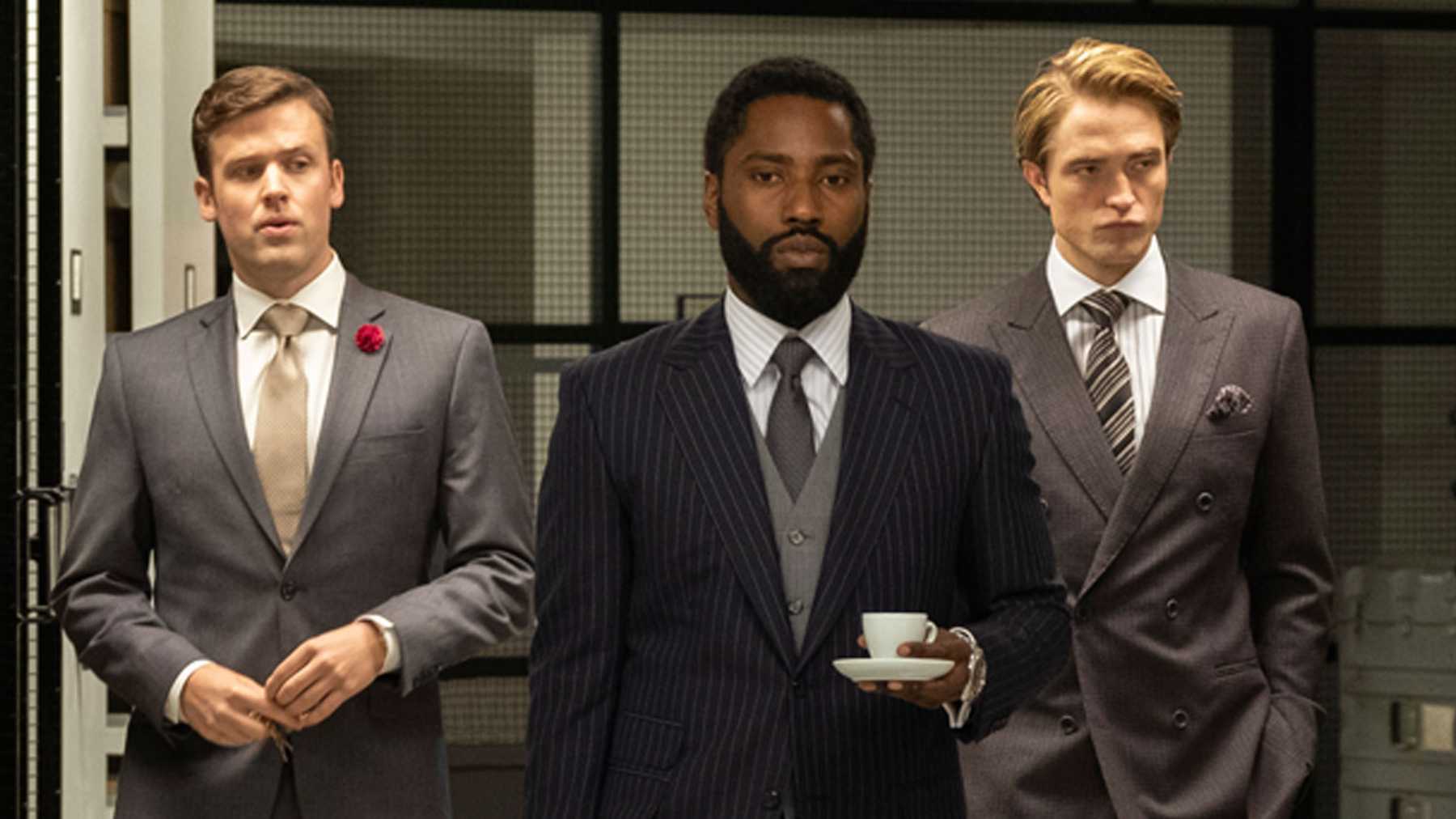(From left) Jack Cutmore-Scott, John Washington and Robert Pattinson star in Christopher Nolan’s latest film “Tenant.” Photo from Empire Online.
As movie theaters slowly reopen across the United States during the COVID-19 pandemic, “Tenet” took the opportunity to be the first major blockbuster to open in theaters, even as other films released on various streaming and on-demand platforms. From the moment this film was announced, I was truly excited to watch “Tenet,” as nearly all of Nolan’s previous films have ranged from good to excellent.
Without spoiling too much, the film follows The Protagonist, a secret agent played by John David Washington, as he manipulates time to prevent World War III. With this complex plot and visually stunning designs, “Tenet” is an entertaining and interesting action thriller, but it lacks the characterization of Nolan’s previous films in favor of exploring various aspects of the film’s world. The movie keeps the audience in the dark about what is going to happen next, and nearly every action sequence in the film is brilliantly choreographed and visually stunning enough to warrant multiple viewings simply to catch hidden moments within the overall film.
The problem is that the film is more interested in its central plot than actually giving the film relatable and fully developed characters. The film opens with a great action sequence at an opera house without introducing anything, which really hinders the film when it decides to have more style over substance towards the end. John David Washington and Robert Pattinson are both very good in the film, and yet their characters are barely written beyond clever soldiers in a hidden organization. The only true characterization the film has involves its villain, Andrei Sator, who embodies nearly every cliche Russian villain trope without enough clever thoughts to make it seem intentional. Kenneth Branagh is pretty good in the role and Elizabeth Debricki as his estranged wife is given far more to do then I originally anticipated.
While the film does have its entertaining moments and plenty of good dialogue, there just seems to be something missing from the production. There are a lot of exposition heavy scenes that consistently move the plot along and yet I always had a general idea of what was going on up until the intriguing third act. The tension within the action sequences still exists, but the lack of true characters in the film makes every revelation and new concept that is introduced have less weight as the film moves along.
There is never a dull moment in the entire film and yet some of the film’s inconsistent editing choices makes the film have unintentional tonal shifts that really could have been fixed by adding one or two extra scenes. On the other hand, “Tenet” does incorporate a lot of interesting editing techniques ranging from switching scenes between cuts and showing scenes from different angles, especially towards the third act. The third act of the film also remains both its greatest achievement and flaw because the concept and execution of it are well integrated into the film’s over-the-top and convoluted story. By the time the final revelations about Sator and The Protagonist are revealed, the audience is left with more questions than actual intrigue of what is going on in the film.
The final action sequence is both a visual marvel and an interesting thriller that combines a lot of questions with a nice blend of dramatic monologues and rare moments of character chemistry. Lastly, “Tenet” does have one of the best soundtracks I’ve heard all year, which truly helps the action sequences, even when it can be overpowering in some dialogue sequences.
Overall, “Tenet” is a visually stunning action thriller with plenty of interesting ideas and good dialogue that simply lacks the characterization and subtlety that Christopher Nolan has in his other films and some of the stakes and chemistry between characters that it really should have.
Rating: 7/10

